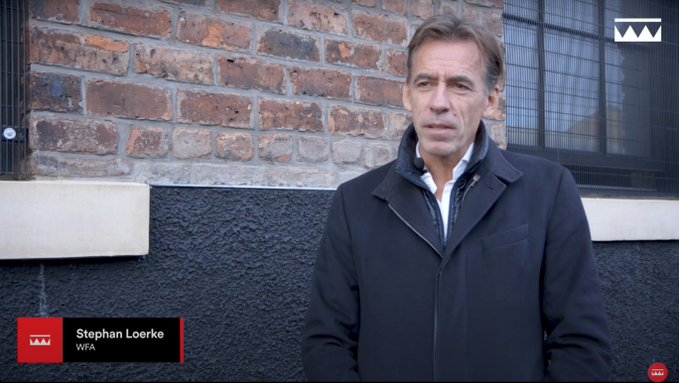The marketing industry needs to evolve how it views sustainability if it is to effectively combat the climate crisis and hit Cop26 targets, argues Stephan Loerke, chief executive officer of the World Federation of Advertisers (WFA). He reflects on the organization’s first climate conference – likely the first of many more to come.
WFA chief exec Stephan Loerke has helmed the organization for 23 years, and its members now include top brands Unilever, Pepsico, Mars, Diageo and Mastercard. It’s only just now that marketers have been invited to the table to offer their positive contributions to the climate crisis as the issue threatens global economies in their current form.
“This is now an inflection point in terms of participation of business,” says Loerke, who pointed out that top brands were absent from the Paris agreement almost half a decade ago. Now there have been many frank conversations about the so-called “consumption conundrum.”
“Marketers perceive marketing as an engine to drive growth, and growth in its current form is unsustainable, therefore the climate emergency is actually a threat to marketing.” That’s a commonly raised concern, but Loerke urges a different view.
“We want to turn this on its head. We want marketers to do what they’re best at and bring the outside in, however complicated, dynamic and challenging that is. Figure out how you stand out, innovate and outcompete the markets and better serve the consumer with respect to these aspirations.”
The threat to marketing only exists if the practitioners maintain a “defensive” posture “without actually embracing the challenge.”
Shifting agendas
Until now, sustainability initiatives have often been driven from a corporate social responsibility (CSR) perspective. Such efforts can be vulnerable to accusations of greenwashing – some of them are indeed textbook examples of this.
Loerke defines why CSR sustainability is failing marketers. Sustainability has moved from a CSR-type agenda to a strategic business priority agenda. “That’s a huge difference.”
As a CSR exercise, Loerke believes it is equivalent to brands saying: “‘Okay, this is a problem. It’s not us, it’s someone else out there in society, but we’re going to do something charitable about it even if it is not linked to the core of our business.’ That type of CSR approach is unsustainable.”
These schemes evaporate the second any brand faces a downturn.
Sustainability is something he wants the chief marketer to be the “champion” of. Brands need to course-correct their own environmental impacts before focusing elsewhere. For one, it appears as a means of obfuscating these impacts, CSR campaigns are proving to be ineffective. As marketing campaigns too, CSR efforts disproportionately fall flat. It’s something he believes the consumer wants to see more of.
But real change is hard, and progress incremental. And that presents a comms issue.
Loerke summarizes: “[Often brands] don’t say anything until they are 100% perfect. But that is not going to be workable. In the context where sustainable is such a systemic change, no one can pretend that they know they can come out with perfection because it doesn’t exist.”
He concludes: “The climate urgency is here. And businesses need to embrace it. I can see how people in the industry care about this. Be proud to be a marketer and attack this issue in an ambitious manner.”
Over the week, we’ve been talking about greenwashing, media carbon measurement, Greenpeace’s warning to agencies and a letter asking tech giants and governments to deplatform climate lies.
Read more: https://bit.ly/3CfW18w




